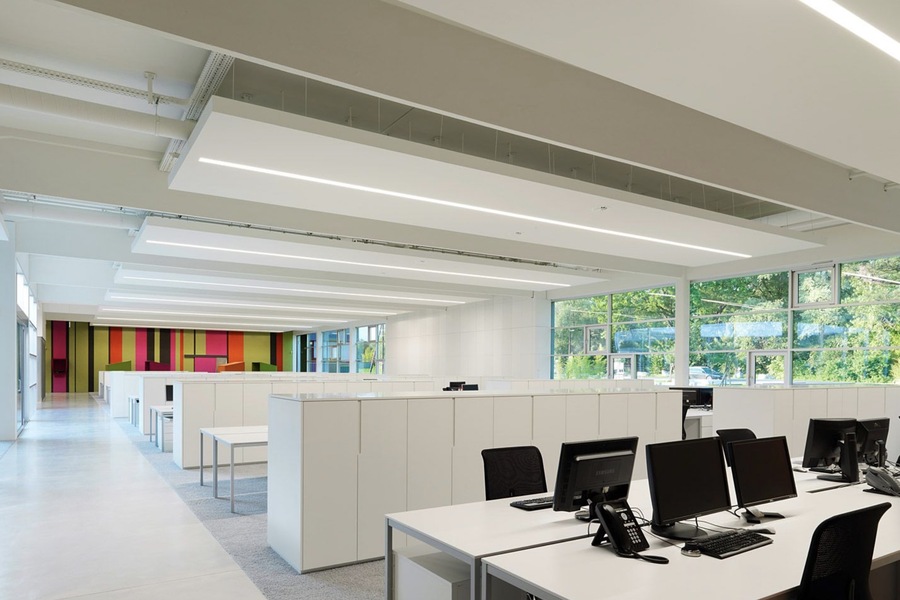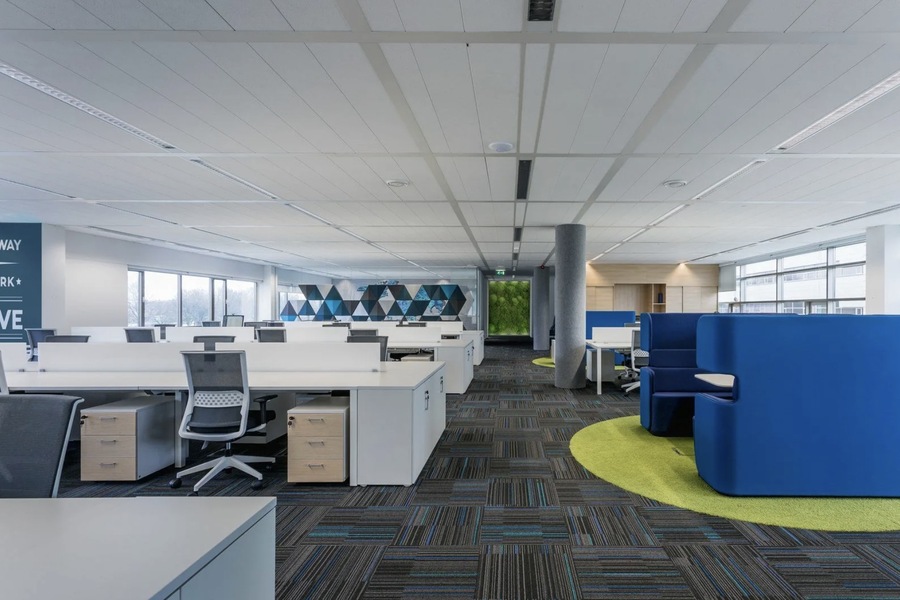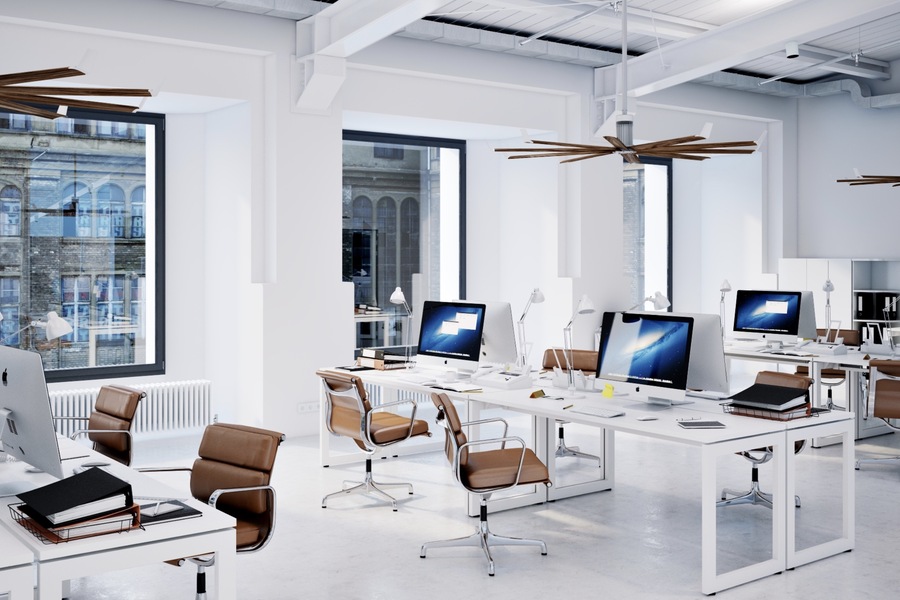In Dubai’s dynamic commercial landscape, businesses are increasingly blending retail spaces with corporate operations to respond to evolving consumer preferences and operational needs. Retail offices and pop-up workspaces are becoming popular solutions for companies seeking flexibility, brand visibility, and cost efficiency. This trend allows businesses to reduce the separation between back-office functions and customer interactions, creating a seamless operational model that maximizes both visibility and efficiency. As Dubai cements its reputation as a global business hub, the adoption of these innovative spaces reflects the region’s adaptability to shifting market demands.
The Evolution of Retail Offices and Pop-Up Workspaces
Retail offices—where corporate operations are housed within retail settings—and pop-up workspaces—temporary setups for specific campaigns or operations—are redefining how businesses operate. This concept aligns with the global shift toward more flexible work models and the need for companies to be closer to consumers. Businesses across sectors such as technology, fashion, and financial services are adopting these hybrid spaces. Retail offices act as visible hubs for operations, while pop-up workspaces provide an agile framework for testing new markets or launching seasonal campaigns.
Strategic Advantages of Retail-Office Integration
Brand Visibility and Customer Engagement
One of the primary benefits of merging retail and office functions is enhanced brand visibility. By locating operations within retail environments, businesses place teams closer to customers, fostering more meaningful interactions. For example, employees can monitor customer preferences firsthand, enabling rapid responses to feedback and market trends. This real-time engagement model helps businesses enhance consumer satisfaction and loyalty by delivering personalized experiences.
Operational Efficiency
Combining retail and office functions also improves operational efficiency by consolidating resources. Businesses can manage retail operations and administrative tasks within the same space, reducing logistical challenges. Additionally, having operational teams on-site ensures quicker problem resolution, minimizing delays in decision-making processes. This dual-purpose model aligns well with companies aiming to reduce costs without compromising on service quality.
Flexibility Through Pop-Up Spaces
Pop-up workspaces provide companies with the flexibility to launch campaigns, host events, or enter new markets on a short-term basis. These setups are particularly relevant for businesses testing new products or services, as they offer exposure without the commitment of long-term leases. For example, fashion brands in Dubai frequently establish temporary stores during peak seasons in malls like Mall of the Emirates, attracting seasonal shoppers and enhancing brand exposure.

Dubai’s Real Estate Market and Retail Integration
Dubai’s commercial real estate market has evolved to accommodate these hybrid models. According to market reports, demand for office and retail spaces in the city surged by 15% in 2024, driven by the technology, finance, and media sectors. This trend reflects a growing interest in spaces that support both retail and corporate functions. Free zones such as Dubai Media City and Dubai Internet City further encourage the use of flexible spaces, offering businesses favorable leasing terms and streamlined operational frameworks.
Additionally, prime locations like the Dubai International Financial Centre (DIFC) have witnessed increased demand for office spaces that also serve customer-facing functions. These areas attract businesses seeking both operational infrastructure and premium visibility. Retail-office integration offers a practical solution to challenges such as rising rental costs and limited availability of prime commercial spaces. Companies that adopt this model are better positioned to maintain agility in Dubai’s competitive environment.
Technology-Driven Retail-Office Models
The integration of retail and corporate spaces is further facilitated by technology. Tools like cloud platforms, mobile point-of-sale (POS) systems, and data analytics solutions allow businesses to manage operations efficiently across different functions. For instance, inventory systems connected to retail offices enable real-time stock tracking, reducing operational gaps between sales floors and administrative teams. Furthermore, Internet of Things (IoT) solutions provide actionable insights into customer behavior, empowering companies to fine-tune their services on the go.
Dubai’s technology infrastructure supports these innovations, enabling businesses to enhance both retail and corporate functions. The adoption of smart retail solutions is likely to accelerate as companies seek ways to optimize hybrid workspaces. With these technologies in place, retail offices and pop-up workspaces become not only more efficient but also more adaptive to market changes.
Challenges of Retail-Office Integration
While retail-office spaces offer numerous benefits, businesses must address specific challenges to ensure smooth operations.
Regulatory Compliance
Operating within mixed-use spaces may require adherence to local zoning regulations. Businesses need to coordinate with Dubai authorities to ensure compliance with leasing terms and operational requirements.
Lease Negotiation
The rising rental prices in Dubai’s high-demand areas, such as DIFC and Downtown Dubai, pose challenges for businesses seeking retail-office spaces. Effective lease negotiations are crucial for securing prime locations at favorable terms.
Operational Complexity
Managing dual-purpose spaces requires meticulous planning to balance customer service with back-office operations. Companies need to ensure that employees are adequately trained to handle diverse tasks without compromising on service quality.
Sustainability and the Role of Retail-Office Spaces
Sustainability has become a priority in Dubai’s commercial sector, and retail-office spaces align well with the city’s environmental goals. These hybrid spaces encourage the efficient use of resources by consolidating functions within a single location. This reduces energy consumption and operational waste, contributing to more sustainable business practices. Furthermore, temporary pop-up workspaces limit the environmental impact by promoting short-term usage of materials and minimizing the need for permanent infrastructure. Dubai’s commitment to green building practices is reflected in the growing demand for environmentally friendly retail-office spaces.

Future Outlook and Opportunities in the UAE
The integration of retail and office spaces is poised to grow, driven by evolving consumer behavior and business needs. In the UAE, this trend aligns with broader economic strategies aimed at fostering innovation and entrepreneurship. As more companies explore hybrid operational models, the demand for multi-functional spaces will continue to rise.
Future developments may include the emergence of e-commerce hubs that blend physical retail with digital fulfillment centers. These spaces will allow businesses to manage both online and offline operations seamlessly, enhancing customer experiences. Additionally, collaborative workspaces within retail settings are expected to gain popularity, providing entrepreneurs and freelancers with accessible environments for networking and business development.
Dubai’s position as a global business hub makes it an ideal location for experimenting with retail-office models. With favorable government policies and a supportive business ecosystem, companies in the region are well-positioned to leverage these spaces for growth and innovation.
Conclusion
Retail offices and pop-up workspaces represent a forward-looking approach to business operations in Dubai. By merging retail visibility with corporate functions, these hybrid spaces offer businesses the opportunity to optimize costs, improve operational efficiency, and enhance customer engagement. As Dubai’s commercial real estate market continues to evolve, companies that adopt retail-office models will be better equipped to navigate challenges and capitalize on new opportunities. The increasing availability of flexible office space for rent across the city supports this trend, providing businesses with the infrastructure needed to thrive in a competitive market.
With strong demand across sectors and a growing emphasis on technology and sustainability, retail-office integration is set to shape the future of business in the UAE. Companies that embrace this approach will not only benefit from reduced operational costs but also position themselves at the forefront of innovation and customer experience.

Hiking addict, shiba-inu lover, record lover, Swiss design-head and New School grad. Acting at the crossroads of modernism and sustainability to craft an inspiring, compelling and authentic brand narrative.
